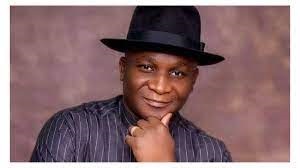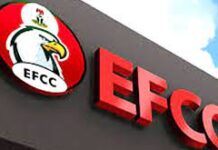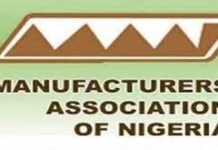By Ifeatu Agbu
Once again, the Niger Delta Development Commission, NDDC, is at the dawn of a fresh beginning. For the past 23 years, the journey with the Commission, as a vehicle designed for the rapid and sustainable development of the Niger Delta region, has been contending with bumps, potholes and sundry challenges.
While there have been many successes and achievements, there have also been disappointments and under-performance. These have made it imperative to improve on the processes within the Commission to ensure a more efficient and effective service delivery.
On August 29, 2023, ostensibly to boost hope for Nigeria, in general, and the Niger Delta, in particular, President Bola Ahmed Tinubu approved the appointment of a new Board and Executive Management for the Commission, naming Mr. Chiedu Ebie as Chairman and Dr Samuel Ogbuku as the Managing Director and Chief Executive Officer.
The new team, inaugurated on November 16, 2023, is coming at a time Niger Deltans are once again yearning for positive change on the wings of the Renewed Hope Agenda of the President Tinubu’s administration. The Board is expected to reposition the NDDC for better performance and improved service delivery.
Even with the high expectations, the Board members must pay heed to the wise counsel of an American educator, Peter F. Drucker, who wrote on the need to strike a balance between management and leadership. According to Drucker: “while management is doing things right; leadership is doing the right things.”
For instance, Board constituted by former President Muhammadu Buhari early this year, was more or less consumed by the struggle for who was right and who was wrong. The erstwhile Chairman, Mrs. Laureta Onochie, was caught in a struggle to wrest control of the management of the Commission from the Managing Director and Chief Executive Officer, Dr. Samuel Ogbuku, in a fight that ran against the provisions of the Act establishing the NDDC. It led to months of confusion and conflict which spilled into the media space.
Notable people in leadership positions have always recommended getting the right team to accomplish a task. For General Collin Powell, who was Chairman of the US Joint Chief of Staff [1989-93] and the first African American to be appointed Secretary of State, you need the right calibre of people to deliver good results. He wrote: “Organisation doesn’t really accomplish anything. Plans don’t accomplish anything either. Theories of management don’t matter. Endeavours succeed or fail because of the people involved. Only by attracting the best people will you accomplish great deeds.”
Apparently, President Tinubu had this at the back of his mind while assembling the current Governing Board of the NDDC, made up of astute administrators and consummate technocrats. And in an apparent nod to the performance of Dr. Ogbuku the President reappointed him to a fresh term in the same position.
Now, more than ever before, stakeholder engagement must take centre-stage. Granted that the Commission has been on this path in recent months, this is the time to rev up the engine of collaboration.
Stakeholders in the region agree that to create a Niger Delta that is investment-friendly and capable of stimulating economic prosperity, all hands must be on deck. There is a recognition that the task of achieving this goal cannot be left for the NDDC alone, but must involve all development partners, including the private sector.
The socio-economic transformation of the Niger Delta is too complex to be left for only one or two agencies of development. Obviously, undoing the damage wrought by decades of neglect and injustice requires partnership and synergy. The NDDC Act recognizes this mandate and has defined the Commission as a facilitator for the development process that involves a combination of all relevant stakeholders in the region.
All stakeholders must therefore be brought on board to confront the challenge of rescuing the Niger Delta. It makes sense to pull all resources together to confront the injustice and inequality that have ruled the lives of the people in Nigeria’s oil basin. Undoubtedly, the Niger Delta region deserves a lot more than it is getting now. The oil companies operating in the region created oasis of wealth in a desert of poverty in the past, a situation that needs to change for the region to leapfrog into the modern era where the availability of basic infrastructure is taken for granted.
In response to the need for coordinated efforts, the NDDC set up a clearing house called the Partners for Sustainable Development (PSD) Forum. This important organ brings together representatives of federal and state governments of oil-bearing states, youth and women leaders, traditional rulers as well as the organized private sector, civil society, the mass media and international development agencies such as the UNDP and the World Bank. Their main function is to ensure that the developmental activities and the budget process across agencies and project providers in the Niger Delta are synchronized.
The PSD Forum, which had been dormant since 2016, came alive again on August 21, 2023, when the NDDC hosted a two-day 2024 Budget of Reconstruction Conference at Ibom Icon Hotel and Golf Resort in Uyo, Akwa Ibom State.
Participants at the conference, comprising key stakeholders in the Niger Delta region, emphasised the strategic importance of the PSD Forum in the activities of the NDDC, especially in the budgetary process. They observed that the body helps to check duplications and institutional suspicions in the development process, thereby reducing the incidence of working at cross purposes as well as curbing wastage of scarce resources allocated for regional development initiatives.
The conference could not have come at a better time, as its findings and recommendations provide a solid foundation to develop a good template for the NDDC Board and Executive Management. The recommendations of the stakeholders could appropriately serve as a development compass in the short and medium term, in the first instance.
Aligning with the mood in the region, the stakeholders resolved that the best option for facilitating regional development was for all concerned parties to work together as partners. They urged the NDDC to organise town hall meetings and engage the various ethnic nationalities of the region before budget sessions to ensure that the document receives inputs from the people directly.
Another recommendation which stressed the need for the Commission to strike a balance between meeting political demands and serving the people of the region by executing people-oriented projects, deserves the new board’s attention.
In finding the right balance and making the right choices, a development strategy, such as the expired Niger Delta Regional Development Master Plan, would have come in handy. The new team must, therefore, begin the process of reviewing the road map for a comprehensive development of the Niger Delta region.
While the comprehensive plan is awaited, the Board should create a template for the equitable distribution of projects among the states of the region and constitute a team for monitoring and inspecting projects to ensure efficient implementation.
It is heart-warming to note that the NDDC is already making efforts to entrench transparency and accountability in the running of its affairs, in order to build confidence and encourage development partners. The Commission recently signed an agreement with KPMG, a multinational business management consultancy firm, to provide advisory services on global best practices in corporate governance culture and internal processes. This will certainly enhance the credibility of the NDDC and ultimately attract more investors to the region.
The Commission is on track to establishing structures to improve and strengthen its internal processes and institutional protocols by taking definitive steps towards following due process in all its operations.
Dr. Ogbuku, who is privileged to return as the Chief Executive Officer, called attention to the challenges of inadequate funding at the conference. It is public knowledge that inadequate funding ranks very high among the numerous factors slowing down the pace of development.
The good news is that the NDDC is erecting platforms for sustainable partnerships and collaborations. In the last couple of months, the Commission started focusing on Public, Private Partnership, PPP, as the new direction to achieve its mandate of ensuring the sustainable development of the Niger Delta region. The PPP approach is seen as an alternative source of funding for key development projects and programmes.
There are indications that efforts in this direction will intensify, as the NDDC Chairman has assured that the new team at the Commission will continue to emphasise collaboration with stakeholders in driving the Renewed Hope Agenda of Mr. President.
Indeed, it is through partnerships that the NDDC can enlist the support of foreign and local investors, as well as multilateral agencies. The Board and Executive Management should do well to encourage these collaborative efforts to build a new Niger Delta that fulfils the mission of the NDDC “to facilitate the rapid, even and sustainable development of the Niger Delta into a region that is economically prosperous, socially stable, ecologically regenerative and politically peaceful.”

























